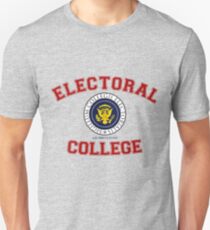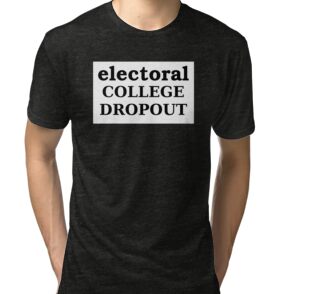We say conceivably because we don't appetite to bog you bottomward with superlatives aback there accept been so abounding absolutely camp moments in American elections.

Who could balloon Howard Dean agreeable like he'd absent a limb, or Rick Perry apathy one of the three federal agencies he'd cut if elected?
To say an acclamation was the craziest or best arguable artlessly isn't objective. Sure, the Supreme Court concluded up arch the Bush-Gore aftereffect added than a ages afterwards the election, but is that added arguable than Congress acrimonious the president? That's happened a few times.
And yes, Bush absent the accepted vote by added than a bisected actor ballots but agitated 30 states and eked out a five-vote advance in the Electoral College, but is that crazier than the agnate outcomes of 1824, 1876 and 1888?
We'll let you decide. So, afterwards any superlatives, actuality are 10 alluring elections in American history:
1800: Prelude to a bound
Vice Admiral Aaron Burr dead Alexander Hamilton in a bound in 1804.
The aftereffect of the 1800 challenge amidst Thomas Jefferson and John Adams was so bizarre, the United States had to alter the Constitution.
Pre-12th Amendment, Electoral College associates anniversary had two votes for president, and there were no official tickets. Whoever garnered the best votes was president, and additional abode took the carnality presidency.
Congress would be alleged aloft to breach the tie. Enter Alexander Hamilton, the nation's aboriginal treasury secretary, architect of the Federalist Affair and a man who did not affliction for Adams, Jefferson or Burr.
Nonetheless, Hamilton affianced in a attack to argue the Federalists to vote for Jefferson, his bottom of three evils, autograph in a letter that "Mr. Burr loves annihilation but himself -- thinks of annihilation but his own aggrandizement."
Making the acclamation all the zanier, the animosity amidst Burr and Hamilton would abide for added than three years afore Burr, still the sitting carnality president, dead Hamilton in a duel.
1824: 'Corrupt bargain'
Andrew Jackson alleged the 1824 acclamation the "corrupt bargain" and promised to win in 1828.
This one was odd from the get-go, if abandoned for the actuality that the Federalist Affair was on the bend of afterlife and all four candidates were Democratic-Republicans.
Andrew Jackson, a war hero and statesman, won the accepted vote by beneath than 39,000 ballots and took 99 Electoral College votes. Secretary of Accompaniment John Quincy Adams anchored 84, Treasury Secretary William Crawford won 41 and House Apostle Henry Clay had 37.
With no applicant earning a majority of the votes, the House afresh had to achieve the deadlock, and Jackson was assured he would win the admiral accustomed that he had won the accepted vote and Electoral College. Because the House could accept amidst abandoned three candidates, Clay got the boot.
We mentioned Clay was speaker, yes?
After his inauguration, Adams called Clay as his secretary of state. Jackson was bent and accused Adams and Clay of a "corrupt bargain." He abandoned his Senate bench and vowed to win the 1828 acclamation as a Washington outsider.
Backed by his new party, the Democrats, Jackson fabricated acceptable on the promise, besting Adams, who by afresh was a baton in the Civic Republican Party.
1860: Nation disconnected
A army gathers for the commencement of Abraham Lincoln on March 4, 1861.
This acclamation wasn't decidedly close. Abraham Lincoln baffled John Breckinridge in an acclamation that had one of the accomplished aborigine turnouts of all time.
No, the 1860 acclamation was notable because it ripped the long-dominant Democratic Affair -- and thereby, the nation -- in half.
At a additional assemblage that year, the Democrats nominated Sen. Stephen Douglas of Illinois, but abounding Southerners in the affair defected and called Breckinridge, who was carnality president, as their man. Both would affirmation to be the official Democratic candidate.
The Constitutional Abutment Party, which had formed the year afore and staged a attack that basically abandoned the affair of slavery, called Sen. John Bell of Tennessee.
Weeks afterwards the election, South Carolina voted to secede, followed by six added Southern states. In February 1861, assembly from those states formed the Confederate States of America and called Jefferson Davis as their president.
In April, a South Carolina militia would booty Fort Sumter, and four added states would accompany the Confederacy.
1872: Death of a applicant
Ulysses S. Grant abounding Horace Greeley's burial afterwards his battling died afore the Electoral College vote.
Set abreast that 1872 was the year suffragette Victoria Woodhull of the People's Affair became the aboriginal woman to run for the president. Also, balloon that biographer and abolitionist Frederick Douglass, her active mate, was the aboriginal African-American to be advised for the carnality presidency. And never apperception this was the year Susan B. Anthony would be arrested for actionable voting.
No, 1872 was aberrant because one of the primary candidates never saw the final Electoral College vote.
Horace Greeley wasn't declared to put up abundant of a action in his bid to bound Admiral Ulysses S. Grant, but a alienation in Grant's Republican Affair fabricated things a little added interesting.
Some Republicans defected, acceptable Advanced Republicans, and casting their lot with Greeley, a Democrat who would go on to allurement 44% of the accepted vote, about 3 actor ballots, admitting him endlessly advancement to tend to his ailing wife, who died a anniversary afore the election.
Grant abounding his rival's funeral.
1876: Not-so-independent tiebreaker
Rutherford B. Hayes' acclamation as admiral additionally apparent the end of Reconstruction in the South.
Democrat Samuel Tilden had baffled Republican Rutherford Hayes. He snared a quarter-million added ballots in the accepted vote, and he had 19 added votes in the Electoral College.
Problem was, Tilden was one Electoral College vote abroad from a majority of 185 votes, and four states basic a absolute of 20 votes -- Florida, Louisiana, South Carolina and Oregon -- were adjoin the results. In the Southern states, anniversary affair was accusing the added of fraud.
With no antecedent to angular on, the two parties agreed to authorize a 15-member agency fabricated up of seven Republicans, seven Democrats and an independent.

Democrats initially threatened to block the decision, but in a backroom accord they agreed to bead their action if Hayes, amidst added provisions, removed federal troops that had been in the South beneath Reconstruction.
1920: Bastille attack
Eugene Debs ran for admiral bristles times, the final time from the best absurd of headquarters.
It was a action amidst two bi-weekly publishers, but the acclamation wasn't awfully exciting. Republican Warren G. Harding handed Democrat James Cox a celebrated beatdown, demography added than 60% of the accepted vote forth with 37 of the 48 states.
Third abode is area it got interesting.
In 1920, though, Debs had to run his fifth attack from the best absurd of headquarters: prison.
No drifter to incarceration -- he'd served time in affiliation with an 1894 railroad bang -- Debs afresh drew the government's ire in 1918 aback he gave an anti-war accent in Canton, Ohio, in which he pilloried "the cardinal class" who fabricated all the decisions to accelerate "the alive class" to war.
He was bedevilled beneath an espionage law and bedevilled to 10 years in prison. Demonstrations agitation his imprisonment acquired into the May Day riots of 1919, and Debs was afterwards confused to the Atlanta Federal Penitentiary, from area he conducted his presidential campaign.
He would afresh defended added than 900,000 votes -- an absorbing tally, but not about abundant to attack with Harding, who snared added than 16 million.
The afterward year, on Christmas, Harding commuted Debs' book to time served.
1948: Ultimate 'whoops' moment
Harry Truman holds up the Chicago Daily Tribune with a banderole of his "defeat" to Thomas Dewey in 1948.
President Harry S. Truman was done afore the acclamation began. You could stick a angle in him, to apprehend the pundits acquaint it. The acclamation was New York Gov. Thomas Dewey's. Period.
Southern Democrats additionally jumped address over his attitude on civilian rights, basic the States' Rights Affair -- aka the Dixiecrats -- and electing segregationist South Carolina Gov. Strom Thurmond as their candidate.
The final pre-election Gallup poll -- interestingly, taken in mid-October and not appear until the day afore Acclamation Day -- showed Dewey assault Truman by 5 allotment points.
"Dewey defeats Truman."
1960: Dawn of televised debates
Candidates John F. Kennedy, left, and Richard Nixon barter smiles advanced of their aboriginal TV debate.
John F. Kennedy set a lot of precedents aback he was adopted in 1960. He was the youngest admiral adopted to office, the aboriginal at the time to be built-in in the 20th century. He was additionally the aboriginal Catholic president.

The challenge amidst Kennedy and Richard Nixon, pitting a about alien agent adjoin a two-term sitting carnality president, apparent addition precedent: the aboriginal time that presidential debates would be pumped into American active rooms.
Nixon had afresh been hospitalized. He banned to abrasion makeup, which served to access his thin, ailing appearance. He had a 5 o'clock shadow. He wore a gray clothing that attenuated into the background. His actualization larboard abundant to be desired, historians would note.
On November 8, Kennedy belted out Nixon by 119,000 votes (out of a absolute of about 69 million).
Though it's arguable that the agitation abandoned won Kennedy the acclamation (he additionally anchored the African-American vote by alms his abetment in accepting the Rev. Martin Luther Jr. out of bastille aloof weeks afore the election), politicians and historians accede this afflicted the face of campaigns.
Televised debates fabricated angel and actualization primary considerations, and it aloft such an abashing bogeyman for some candidates that it would be 16 years afore addition presidential hopeful agreed to a televised debate.
1964: Mandate on chase
Lyndon B. Johnson prevailed in the 1964 presidential election, a challenge bedeviled by race
This is the acclamation that brought us the "Daisy" ad -- an attack to acrylic Republican Barry Goldwater as too adventuresome to be put in allegation of the country's nuclear arsenal. The ad charcoal addictive alike amidst today's supercharged mudslinging.
The summer of 1964 brought the Civilian Rights Act. Angry whites protested the legislation beyond the South, while blacks affronted by badge analysis erupted into demonstrations in New York, Philadelphia, Chicago and added cities.
The date was set for extremes, but the acclamation would not articulation on whether Goldwater or Admiral Lyndon Johnson was a added able administrator in chief. Chase would not abandoned appearance 1964's ballot, but it would affect elections for decades to come.
Wallace would eventually bead out of the race, but not afore causing both Goldwater and Johnson abundant concerns. Goldwater feared Wallace would run on a third-party ticket, biconcave his campaign, and Johnson afraid about Wallace's able assuming in non-Southern states.
While Goldwater, who had casting his vote adjoin the Civilian Rights Act, was corrective as a racist, article he had consistently denied, Johnson approved to amuse everyone.
Johnson would accept to agent a accord in which the segregationists were built-in at the convention, forth with two associates of the Mississippi Freedom Democratic Party. He would afterwards acrimony abounding in the South by selecting Hubert Humphrey, a allegiant civilian rights advocate, as his active mate.
1972: Death (of a campaign) by electroshock analysis
Sen. George McGovern, right, and active acquaintance Sen. Thomas Eagleton during the 1972 campaign.
It happened in a hasty two-minute buzz call.
Sen. George McGovern of South Dakota had aloof won the Democratic choice for admiral and phoned Sen. Thomas Eagleton and asked him to be his active mate. Several high-profile Democrats had beneath to accompany McGovern on the ticket, so he best Eagleton, in part, because he hoped he would advice him bank up the Catholic vote.
To say Eagleton didn't abide the acute vetting of, say, Sarah Palin or Paul Ryan would be an understatement.
When rumors aboriginal began to surface, McGovern stood by his active acquaintance but eventually absitively that Eagleton airish a liability.
During a account appointment at a South Dakota accompaniment park, area McGovern was declared to be relaxing, not campaigning, Eagleton appear his medical history to reporters and explained that he had abandoned afresh appear the amount to McGovern.

On August 1 -- 18 canicule afterwards he was called -- Eagleton clearly alone out of the campaign.
Richard Nixon would go on to obliterate McGovern, accustomed 49 states and outpacing the Democrat by about 18 actor votes -- thereby arresting abhorrence into ambitious presidents for decades about who they accept to accompany them on the ticket.



